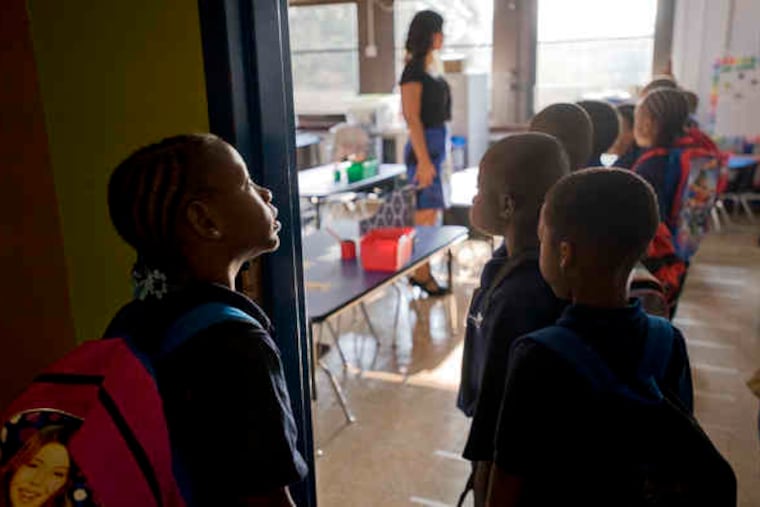Philly’s fight over charter schools is over | Opinion
Families all over Philadelphia have chosen, and charter schools now educate nearly 40 percent of Philadelphia’s school children.

In the bitter debate about “charter schools vs. District schools,” here’s a question: Why are we still arguing about this?
The fight is over. Families all over Philadelphia have chosen, and charter schools now educate nearly 40 percent of Philadelphia’s school children. Like it or not, there’s no point in debating the question any longer: Charter schools are here to stay, and let’s remember, charter or District, they’re all public schools.
Let’s stop wasting energy on that issue, and instead focus on what really matters when we examine the schools our children attend. In every case, we should be asking one fundamental question: Does this school add value? Adding value means that the school provides a quality education for children, and that it is accountable to the families it serves and to the taxpayers of Philadelphia.
Every school, in every neighborhood, should provide the same quality education that wealthier families fight over when it comes to getting their kids admitted to Masterman, or Central, or S.L.A., or Jackson Elementary School.
That’s the real problem: Depending on your zip code, Philadelphia can offer an education that is world class. But if you’re poor and a person of color, the “choice” too often means being stranded in neighborhood public schools that wealthy (mostly white) people wouldn’t tolerate for 10 seconds.
For children in poverty, charters are a much better option. Consider:
· In the 2016-2017 School Progress Report, compiled by the School District to measure performance, charters outperformed District public schools, 43.8 to 33.6;
· Charters outperformed District schools on the state’s School Performance Profile, 57.6 to 52.5. In the most recent PSSA results, 50 percent of charter school third-graders scored proficient in reading, compared to just 35 percent of District third-graders; and
· SPP scores show significantly more economically-disadvantaged students are attending quality charter schools as opposed to District schools. Just 2 in 10 students (22 percent) living in poverty attend quality District schools (schools with an SPP of 60 or higher), while 40 percent attend quality charter schools.
These facts demonstrate the value of charter schools, particularly for the economically-disadvantaged, the overwhelming majority of whom are children of color. Unless you live there, you cannot appreciate the tremendous anxiety that parents face every day trying to get their kids a decent and safe education. For these families, charters often provide the only realistic alternative to neighborhood schools so awful that attending them could be considered a life sentence.
Fixing the system starts with acknowledging these realities and recognizing that we should be focused on supporting good schools of every type. Where charters add value, we should protect them and help them grow. The same is true with District schools. Conversely, when a charter underperforms, it should be held accountable and fixed or closed. But let’s hold the District schools to the same standard: Support great schools, close bad ones. Period.
The real battle is to provide high-quality schools for all children, not just those whose families have the means to insist on it. It’s no accident that in the highest-achieving District schools, the student body is only 16 percent African American; while in the District’s lowest-achieving schools, the student population is 69 percent African American.
So let’s stop debating issues that are already settled, like whether charter schools deserve public support. And let’s get down to the real fight: Allocating scarce public tax dollars to support good schools, charter and District alike, so that every child has equal access to a great education.
State Senator Anthony Hardy Williams represents the Eighth Senatorial District in West Philadelphia.